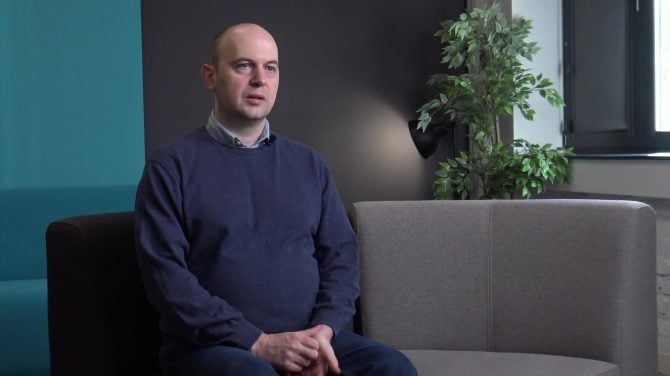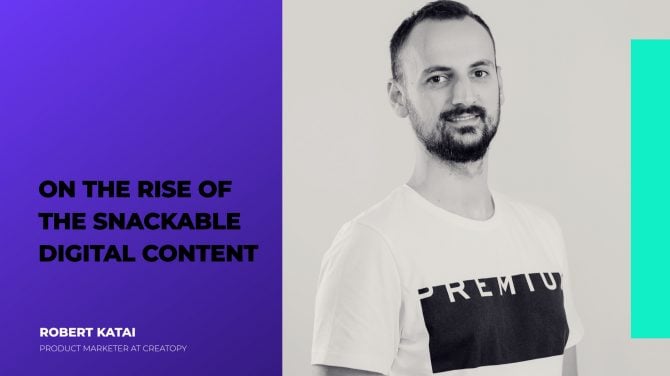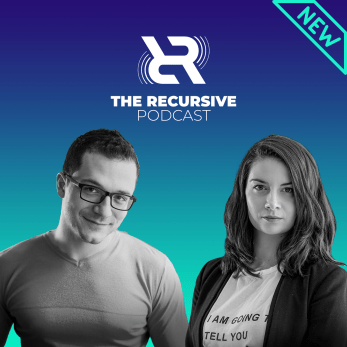Free breakfast. In-office yoga. Bring-your-pet-to-work day. Fluid departments, flexible schedule, and even some equity. We have all heard of the tempting perks companies are throwing around to lure tech talent into their spaces. But are perks the reason one would choose an employer or an environment to develop professionally?
The second edition of “After Hours – Getting social with The Recursive”, a series of events organized in collaboration with BICA Services and Dreamix to explore, discover and debunk everything regarding tech talent, culture, and IT career development in SEE dwells right into this topic to find out what is the secret for strong company culture.
The panelists of this edition: Teodora Lazarova, HR at Anthill, Mina Kostova, CPO at Sportal and Stoyan Mitov, CEO at Dreamix, discuss the theme of “Perks@Work: The Secret for Strong Culture, or No?”. Along with the panelists, Zornitsa Stoilova, Editorial Director at The Recursive sets on a journey to demystify employee perks and fit them within the concept of company culture.
“There are still companies that do not offer more than free coffee or water in terms of perks, but people work there, so there is something that is attracting them and this is exactly the culture. The relationship between people. I truly believe that one of the most important things is the value of your job, the idea of what exactly you are doing. Culture is more than just the perks, otherwise, we wouldn’t have any other sectors except for the IT sector,” says Teodora Lazarova, HR at Anthill.
If perks are not the foundation of a strong culture then what is? Below are five company culture tips and pillars from the panelists.
#1 Rather than being built on perks or other tangible rewards, a company’s culture relies on the beliefs, aspirations, and values of each employee.
“Culture is something you cannot see or touch, but that you should feel,” says Mina Kostova.
The panelists recognized the difficulty in giving the recipe for a good or bad culture. They agreed that the culture is aligned with employee practices and the company’s mission, which automatically invalidates any claims that a particular culture is desirable or undesirable compared to another because each company, as well as each employee, has distinct values.
#2 Business culture is not something that should be forced onto employees but rather established within each team so that it reflects their relevant goals and desires.
“We had a survey in our previous company, in which we asked the employees what kind of entity they wanted to open, a gym or a kindergarten. And guess what, we had a split vote as our married colleagues asked for a facility where they can leave their children, while others expressed great interest in the gym. So it’s never enough. You cannot satisfy everyone’s needs because again, they don’t have the same needs. Indeed, our differences are what steer us one way or the other while shaping culture,” Teodora gives an example.
On the other hand, when bigger corporations are taken into account, one cannot help but assume that some of the offerings, which SME (small and medium-sized enterprises) employees regard as perks, are a necessity in other enterprises. It becomes evident from the discussion that some of the terms are now widely regarded as a necessity rather than a perk. For example, health insurance, multisport cards, and a list of benefits are now part of the package.
#3 Creating traditions with colleagues is key to a healthy environment.
Post-COVID, people often report feeling a bit estranged from each other. However, the coin has two sides. So as employees are returning to the office, they could amend some of their traditions, adapting the company culture to the new trends. Nevertheless, even though perks are not an integral part, their absence can cause issues.
“Perks cannot motivate but they can demotivate if missing”, says Stoyan Mitov of Dreamix.
An example of that could be the lack of punctuality, caused by fixed working schedules, or the lack of focus or distancing from colleagues, which may be the result of the absence of team building and ice-breaker social activities.
#4 Employees’ sense of contribution and personal development matter.
Yet, above all perks or necessities and things that add value to each and everyone’s job, the most important building block of a company’s culture turns out to be the validation of employees’ work and efforts.
“It is very important who you hire, so you can align the people who are part of your organization. Once you have successfully aligned them, they are all driven by a desire to grow and improve. Therefore, they think about growing not only as single individuals, but also as a team, and thus the scale of their collective effort can be reflected on something bigger – the organization as a whole.
Nobody wants to waste two or three years on something that is not even released or is going into the trash bin or has no meaning. Work becomes a major part of your life and you don’t want to spend your time working hard on something that is not successful. So, as I mentioned, the people are the key building block of company culture, which in return aligns these people” Stoyan Mitov adds to the list of company culture tips.
5# You need sustainable remote work habits.
The significance of home offices and flex remote working seems to be highly dependent on productivity. Especially during the pandemic, as many people had to switch to the remote working mode, where they no longer could take the advantage of the free breakfast and parking space, the healthy working environment and strong company culture became the main determinant of whether they wanted to remain in that company. And one way to achieve that is by providing constant support to the employees and keeping them as engaged with their colleagues as possible.
“The culture then was even more important because of the different social, as well as health challenges and fear. If you work in an environment that you cherish and that you believe in and with the people that you trust, in an environment where you feel safe, where you feel that you are growing, improving, that you’re contributing to something more meaningful, something more impactful, this also helps employees address and overcome challenges. ”, Stoyan Mitov concludes.
Tune in and watch the full video for more company culture tips, with real-life examples. You can find “After Hours – Getting social with The Recursive” on our YouTube channel.
If you are hungry for more, register for the next After Hour event “White or Mural Boards: The Hybrid Vs. Remote Work Dilemma” that will take place on October 12, 2022, in Campus X.





